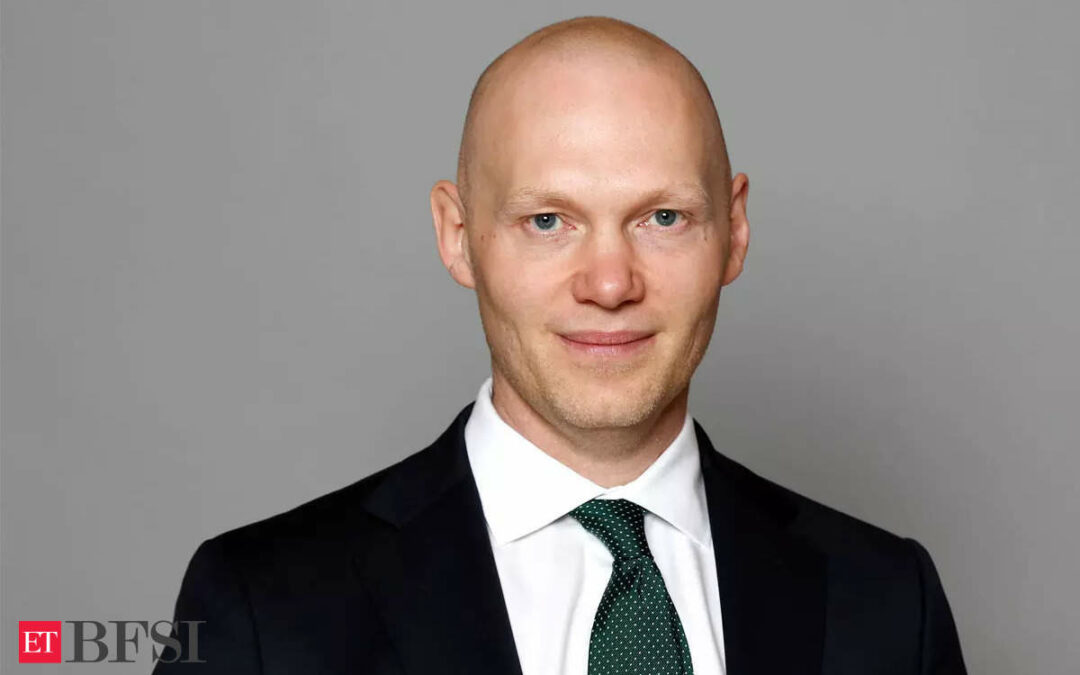Higher interest rates and various military conflicts may have dampened global economic demand, but imports of Indian goods to Sweden have registered a “huge increase” this year, Niklas Wykman, Minister for Financial Markets, Sweden, said to Bhaskar Dutta. In 2022, Sweden’s imports of Indian goods were at 12.15 billion Swedish Krona while exports to India were at 17.3 billion.
Moreover, Swedish firms, especially consumption-oriented ones, are keen to establish operations here and provide a boost to the Make in India programme, Wykman said.
Edited excerpts:
Q: How has India’s trade with Sweden fared? Global demand has slowed amid wars and higher interest rates.
A: We have seen a huge increase, a large increase in percentage points in the import. We are very happy to import from India as well, we’re a trading economy. So, an increase in imports from India is also a welcome thing. (It is) Of course a result of you producing even better services and products. As long as the numbers are growing and the faster they grow on both sides, it’s something that we welcome very much from the Swedish side. That’s the huge benefit of trade, it’s neutral.
Q: Which are the sectors where the imports are coming from?
A: Services is important, overall services. Huge Swedish corporations depend heavily on the knowledge you have here. The workforce is of course very welcome. The Indian community we have in Sweden, the main contribution for Sweden in our corporations is that so many skilled, hard-working people are coming to Sweden and contributing to Swedish corporations. That’s a real upside for us and we are really grateful for that. This government has only been in office for a little bit more than a year, but I know that 20% of the government has visited India. It’s hugely important for us. We have some 60,000-70,000 Indian people coming to Sweden for work. Many of them are in high-knowledge sectors. I know that you have the Make in India and that’s an area – with most Swedish corporations being on the global market, export is their main idea. I know that Swedish corporations can really contribute to that area. If you want to have making in India as a slogan really coming true, then attracting corporations that have production and export as their main idea (is important) – of course Swedish consumer-oriented corporations also want to establish here.
Q: You have had meetings with the RBI and the NPCI and one of the focus areas of your visit is fintechs and digital payments. What can we expect in terms of collaboration?
A: First of all, it’s an amazing journey, for India it’s really interesting also because cross border tries and could really revolutionise consumers, possibilities, business possibilities when it comes to cooperation. We have an instant payment system in Sweden as well. We are working on cross-border payments, and I think we have a lot to learn from your experience. There are also things that India can learn from our experience. This trip is very much about promoting Swedish businesses. We are happy to trade, and we are happy to do business here. The more cooperation, the more trade we can have in the private sector of the economy. Of course, we will have more sharing of knowledge and experience. The exact business opportunities, we leave to the business side.
Q: How would Sweden approach the regulations surrounding new technologies, particularly in the financial sector space?
A: We are two very different economies, but we have very much in common as well and this interest in being at the front edge of new technology is important. I think on the authority side and the government side, we have had, and we can continue to have a fruitful discussion on regulations and risks. The upside of this system is obvious for consumers, for households, for business. But there is also a risk side for criminality, fraud and so on – money laundering, terrorist financing when you can split up one huge transaction into many small transactions in real-time very fast. In such a situation, you need a strong regulatory framework, you need a hard, deep supervision, you need the right legal framework and I believe that is also an area for further collaborations and discussions.
Q: When it comes to an FTA between India and Europe, what are your takeaways from recent meetings here?
A: I had the opportunity to meet with your minister for finance and your minister for foreign affairs and your minister for trade and I have the deepest respect for some of the cornerstones in India for this, but then I am an optimist. Of course, you must be both optimistic and realistic. There is much to be agreed upon, compromises that need to come in place, but overall I am convinced after meeting both the politicians, the business side and the regulatory side, that everyone can see what’s in it here for both India and for Europe, so I’m optimistic and confident that we will reach an agreement and the sooner the better. Just to mention one huge benefit for India – real economy exchanges will of course enhance the financial side as well. There is such a huge need for investment in large sectors in India. Of course, having an FTA would also increase the financial flows which would hugely benefit India as well.










